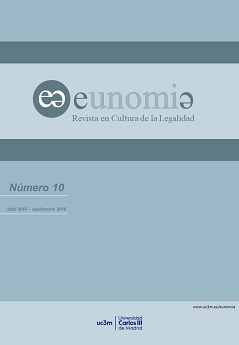Lobbying
Abstract
The definition of lobbying is being developed in parallel with the public demand for increased participation and transparency in public decision-making. In this definition it is made an approach to lobbying activity considering the meaning mainly used by the European Union and the few laws adopted in recent years. Despite the lack of specific regulation, lobbying has a legal cover in representative democracies as a form of participation and defense of social groups interests. However, lobbying also carries risks that can be avoided significantly increasing transparency. Lobbying is to influence from a symmetry in access to and from the transparency, based on the ability to convey the right messages and convince. Having the opinion of stakeholders involved, quality of public decisions improve, but also its legitimacy. In Spain the development of regulations on lobbying is spreading and it is expected that during this new legislature, with new political parties in need of negotiation and agreements, a regulatory framework for this mean of participation will be definitely created.
Downloads
Eunomía. Revista en Cultura de la Legalidad is a duly registered journal, with EISSN 2253-6655.
The articles published in Eunomía are –unless indicated otherwise– under a Creative Commons Attribution-No Derivative Works 3.0 Spain license. You can copy, distribute and communicate them publicly as long as you cite their author and the journal and institution that publishes them and do not make derivative works with them. The full license can be consulted at: http://creativecommons.org/licenses/by-nd/3.0/es/deed.es




